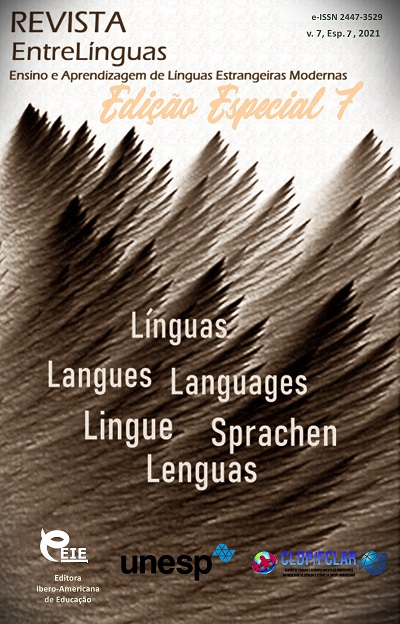Uma conta virtual-teórica do valor do conhecimento
DOI:
https://doi.org/10.29051/el.v7iesp.7.16339Palavras-chave:
Valor do conhecimento, Epistemologia, Epistemologia da virtude, Valor epistêmico, Valor, Conhecimento, Pritchard, Kvanvig, ZagzebskiResumo
O artigo examina o problema do valor do conhecimento em conexão com a epistemologia da virtude. Vários tipos de valor são examinados para estabelecer uma estrutura teórica para a discussão sobre o valor do conhecimento. A teoria pragmática tradicional do valor do conhecimento é considerada com objeções. É mostrado que no centro do problema de valor está o conceito de monismo de valor T (valor da verdade acima de tudo). Diferentes estratégias para superar o monismo do valor T são expostas. A explicação confiável da teoria da virtude do valor do conhecimento é defendida. São analisadas diferentes estratégias de resposta confiabilista ao problema do valor, propostas por A. Goldman, J. Greco, D. Pritchard. Algumas objeções contra a versão confiabilista são consideradas: a objeção da “máquina de café” de Zagzebski e a objeção da existência de conhecimento trivial. Outra alternativa teórica da virtude para o problema de valor de Zagzebski é analisada. Contra o relato de Zagzebski, afirma-se que o conhecimento tem valor fundamental, mesmo que não tenha valor final.
Downloads
Referências
BROGAARD, B. (2007). Can Virtue Reliabilism Explain the Value of Knowledge?. Canadian Journal of Philosophy, 36, 335–54.
GOLDMAN, A. (1979). Reliabilism: What Is Justified Belief. Justification and Knowledge, ed. G. S. Pappas. Dordrecht, Holland: Reidel, 1–23.
GOLDMAN, A., OLSSON, E. (2009). Reliabilism and the Value of Knowledge. Epistemic Value. A. Haddock, A. Millar, & D. H. Pritchard (Eds.). Oxford University Press.
GRECO, J. (2010). Achieving Knowledge: A Virtue-Theoretic Account of Epistemic Normativity. Kindle Edition.
KVANVIG, J. (2003). The Value of Knowledge and the Pursuit of Understanding (Cambridge Studies in Philosophy). Kindle Edition.
PRITCHARD, D. (2010). What is this thing called knowledge? Second edition. New York: Routlege.
PRITCHARD, D., TURRI, J., CARTER, J. (2018). The Value of Knowledge. The Stanford Encyclopedia of Philosophy (Spring 2018 Edition), Edward N. Zalta (ed.), URL = <https://plato.stanford.edu/archives/spr2018/entries/knowledge-value/>.
SOSA, E. (2007). А Virtue Epistemology: Apt Belief and Reflective Knowledge. Oxford University Press. Kindle Edition.
SWINBURNE, R. (1999). Providence and the Problem of Evil. Oxford: Oxford University Press.
WILLIAMSON, T. (2000). Knowledge and Its Limits. Oxford: Oxford University Press.
ZAGZEBSKI, L. (1996). Virtues of the Mind: An Inquiry into the Nature of Virtue and the Ethical Foundations of Knowledge. Cambridge University Press. Kindle Edition.
ZAGZEBSKI, L. (2003). The search for the source of epistemic good. Metaphilosophy, 34(1/2), 12-28.
Downloads
Publicado
Como Citar
Edição
Seção
Licença

Este trabalho está licenciado sob uma licença Creative Commons Attribution-NonCommercial-ShareAlike 4.0 International License.
Os manuscritos aceitos e publicados são de propriedade da Revista EntreLínguas. Os artigos publicados e as referências citadas na Revista EntreLínguas são de inteira responsabilidade de seus autores.
Transferência de direitos autorais – autorização para publicação
Caso o artigo submetido seja aprovado para publicação, já fica acordado que o(s) autor(es) autoriza(m) a UNESP a reproduzi-lo e publicá-lo na EntreLínguas, entendendo-se os termos “reprodução” e “publicação” conforme definição respectivamente dos incisos VI e I do artigo 5° da Lei 9610/98. O artigo poderá ser acessado pela rede mundial de computadores (Internet), sendo permitidas, a título gratuito, a consulta e a reprodução de exemplar do artigo para uso próprio de quem a consulta, desde que haja a citação ao texto consultado. Essa autorização de publicação 328 EntreLínguas, Araraquara, v. 1, n .2, p. 323-328, jul./dez. 2015 não tem limitação de tempo, ficando a UNESP responsável pela manutenção da identificação do(s) autor(es) do artigo. Os artigos publicados e as referências citadas na Revista EntreLínguas são de inteira responsabilidade de seus autores.











